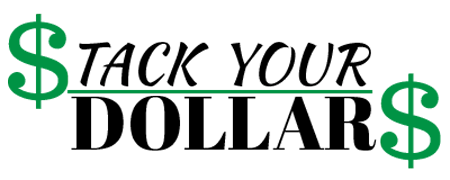Congratulations on becoming a homeowner, or gearing up to be one! As you embark on this exciting journey, it’s essential to acquaint yourself with all the common expenses not to forget when buying a home. These hidden costs of homeownership can potentially strain your budget if not anticipated.
Upon acquiring your new abode, unforeseen expenses may crop up at any moment. Hence, it’s wise to set aside some funds right from the start, post down payment and closing costs.
Here’s a breakdown of both annual and monthly expenses to factor into your new home budget:

Homeowner Expenses List
This is a list of bills to pay when owning a house that has the potential to break your budget. While you’re making plans, these are the expenses not to forget when buying a home:
1. Mortgage
Certainly, you’re already acquainted with the home loan for your new abode, but let’s begin with this crucial aspect to ensure a comprehensive list.
Unless you’re capable of covering the entire cost upfront, these monthly payments are typically extended over a 30-year or 15-year loan period. The total payment comprises both principal and interest components. The principal signifies the borrowed amount, while the interest represents the charge levied by your lender for the borrowed funds.
TIP: Dedicate additional funds towards your principal each month to diminish the interest paid and expedite your loan payoff. But, make sure to specify where you want those extra payments applied!
2. Property Tax
The magnitude of property taxes can fluctuate based on your location, ranging from .3% to 2.5% of your home’s assessed value annually. This ad valorem tax has the potential to increase or decrease each year as your home’s value undergoes reassessment.
3. Private mortgage insurance (PMI)
Typically mandated by your lender when your down payment is less than 20% of the home’s purchase price, PMI safeguards the lender’s investment in case of loan default. PMIs may vary, accounting for 0.5% to 2% of your mortgage amount or more.
NOTE: Qualifying for a VA home loan, which necessitates no down payment, exempts you from PMI obligations.
4. Home Insurance
Essential for homebuyers, this insurance is usually a prerequisite for home purchases. It serves as a protective shield for your investment, safeguarding against potential threats like theft, damage, fire, and more. Additionally, it extends protection to your lender’s interests in the property.
5. Flood Insurance
Standard homeowner’s insurance often excludes coverage for flood damage. If your residence is situated in a flood zone, your lender might necessitate additional flood insurance. Opting for this coverage is not only a prudent move but also a wise investment, especially considering potential natural disasters.
6. Home Warranty
One drawback of homeownership is the absence of the landlord safety net. When something breaks, you can’t simply threaten to move out and leave the repairs to someone else. Now, the responsibility for fixing everything falls squarely on your shoulders.
Consider a home warranty to potentially cover major home systems (HVAC, heating, plumbing) and appliances. These repairs or replacements can be costly, underscoring the importance of maintaining an emergency fund for unexpected expenses.
Average Cost: Ranging from $400 to $700 per year.
NOTE: Negotiating with the seller to cover the first year of the home warranty is a feasible option.
7. Home Security
Ensuring a sense of safety within your home is important, and I strongly advocate for the implementation of home security measures. Options include investing in a home security system with a monthly subscription or creating your own do-it-yourself DIY home security system.
8. Homeowner’s Association (HOA) Fees
Residing in an HOA community entails the payment of HOA fees, contributing to the maintenance of communal spaces and potentially covering some utilities. The fees exhibit considerable variation across regions, ranging from as low as $50 to reaching into the thousands.
9. Utilities
For those transitioning from renting, the anticipation of utility costs is not new; however, bear in mind that utilities for a home can be pricier due to the additional space.
Typical utilities include:
- Electricity
- Gas
- Water
- Garbage/ Sanitation
- Cable, Internet, & Telephone: Beyond the monthly fee, initial setup costs may be required to wire your home for these services.
10. Regular Maintenance
Taking on the role of a homeowner means assuming responsibility for the ongoing maintenance of your residence. This encompasses tasks such as:
- Lawn and Garden care
- HVAC system maintenance and filter replacement
- Pest control (refer to my DIY pest control guide for cost-effective solutions!)
- Replacing light bulbs and alarm batteries
Summary
In closing, the adventure of homeownership is truly remarkable, but it comes with its share of responsibilities. If you’re not ready for the accompanying costs, the dream can quickly turn into a financial challenge. So, as you contemplate your home purchase, remember to factor in these crucial expenses.
It might mean tweaking your budget or considering a more modest home, ensuring a smoother and more enjoyable homeownership experience. Also, here is another list of monthly expenses that covers all aspects of daily living, aiding you in making well-informed budgeting decisions.
